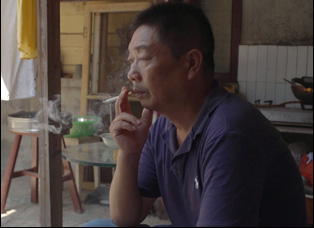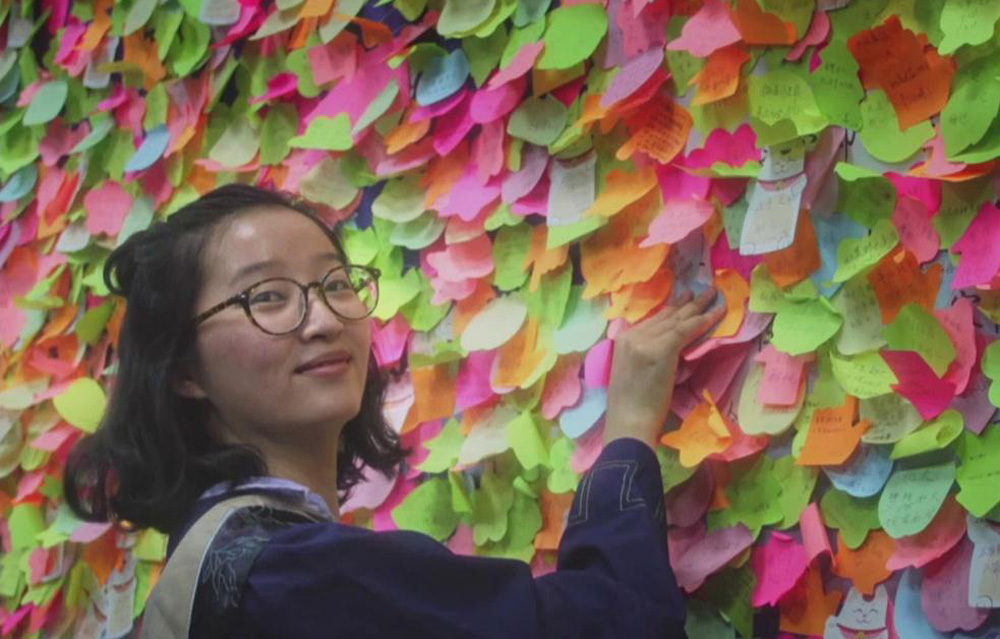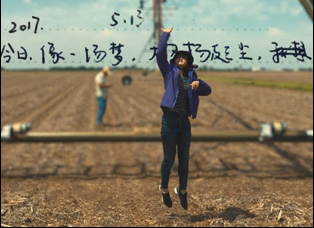“I feel like she’s an old friend of mine even though we never met each other,” Jiayan “Jenny” Shi says of Yingying Zhang, a student at the University of Illinois at Urbana–Champaign who disappeared in the summer of 2017 after accepting a ride from a stranger.
Shi had been a student at Northwestern University and could relate to Zhang simply on the basis of studying in America, a world away from the rest of her family and friends in China, but a deeper connection was forged when Shi was one of many to come to the aid of Zhang’s family upon their arrival in the States to be part of the search for their daughter, a time that was bound to be painful enough before the additional scrutiny of the local media took hold. Having a camera at her disposal and a background in journalism, Shi didn’t consider herself a filmmaker just yet, but saw an opportunity to help in what ways she could by simply filming and among the many things “Finding Yingying” becomes evidence of, it’s that sometimes that’s the most powerful thing you can do.
Although Shi never had the privilege of shaking hands with the person she made a film about, she generously offers the same sense of revelation she experienced herself in getting to know Yingying, a marvelous young woman who deserves to be known for far more than the tragedy that brought her into the public eye. Getting to know the grad student who was studying agricultural science, the director learns of someone who meant so much to so many across two continents and being led by compassion for what they’ve lost when Yingying went missing rather than viewing her disappearance as a mystery to be solved and reconciled by the criminal court system, Shi achieves something that feels quietly revolutionary in pursuing justice in a different form, keeping her memory alive and vivid for all as she will be always in the hearts of those who were close to her.
Since its planned premiere at SXSW earlier this year, where it picked up a Special Jury Award in spite of the festival having to be cancelled as a result of the coronavirus, “Finding Yingying” has been moving audiences across the country at fests that have segued online in recent months, culminating in a release at virtual cinemas this week and with a strong feature debut under her belt, Shi spoke about how she crafted such a compassionate film, connecting so intimately to the situation Zhang found herself in as an international student and feeling her presence in the absence she observed in spending time with her family.
I was a student at Northwestern when Yingying went missing in the summer of 2017 and a lot of Chinese International students were just searching for her. I also posted her information on my social media and because I majored in journalism, I went down to Champaign, which was a two-hour drive from Chicago [where I was], to see what was going on. There were a lot of Chinese students, meeting the family every day. Some volunteers were giving them food and some of them just spent time with the family because they really lonely and they didn’t know the language. I also got connected to the volunteer groups who basically arranged all the assistance for the family, and I got to meet the family, spend time with them and at that time, I was thinking about what I could do. Some people would give the family a donation for living expenses, but I didn’t have money, so I was thinking, I have a camera and I studied documentary, maybe I could start capturing something.
I started documenting — not the family, but what’s going on in the Chinese international student community and there was another volunteer who designed the flyers and sent them to different places and he was also interested in film, so we decided to work together. It took us a month after the FBI arrested the suspect that we realized that the whole thing was going in a totally different direction than we expected. We thought we could find Yingying in two or three days because [other] people just went to Chicago and their phone died and they would get in touch with their friends several days later, but we learned that it’s potentially not only a kidnapping, but also a murder, we realized there’s a big story there.
I found that there are a lot of reporters that are interested in the mystery of someone going missing, but not a lot people focused on Yingying’s family and how they felt as foreigners in a foreign country looking for their beloved daughter, so that really hit me and I thought if the family was okay with it, I could start documenting their experience and also the places that Yingying used to study and work and that could be something helpful to the family — stuff they could bring back to China to share with their friends and family to see that’s what we’re doing in the U.S., so that’s how we started.
You’ve said your own visit to China was pivotal – what transpired there that shaped your ideas about the film?
The family went back to China after they spent five months in the U.S. — the trial was delayed, so basically there’s no need for them to stay in the U.S. and for me as a filmmaker, the first five months, I didn’t know where the story was going to go because we didn’t know exactly what happened and we didn’t know what was going to happen next. And in 2018, I was visiting my own family in China, but I also wanted to visit Yingying’s family, hoping that I’m going to keep documenting their lives and to see how Yingying’s disappearance has affected their life. Yingying’s parents were really nice and basically treated me as their own child. I lived with them in their house and I got to know Yingying so much, especially [since] there are a lot of childhood photos and home videos and I also got to see Yingying’s diaries, [which] totally blew my mind. I suddenly realized she’s such an amazing person. I also got to talk to Yingying’s family, friends, colleagues and childhood friends who all had a lot of stories, and I thought maybe it’s going to be a story of Yingying and we’re going to bring it to life in the film.
Nothing was really stronger than Yingying’s own handwriting because people [would] describe her and even though I already knew that she worked really hard and she actually was the first person in her whole family who went to college — the best in China — I was really amazed already, but when I went back to China to see the humble town where she grew up and see the financial conditions of their family, I really saw what Yingying’s parents were doing on a daily basis and their relationship to each other. You really saw her as a bond that put together the family and I was blown away by her personality in the diary [where] she talked so much about her reflection about the family. You really saw her as someone really brilliant and caring and mature.
Yingying is three years older than me and she went missing two years ago when she was 26 and this year, I’m 26, so I’m just thinking we’re similar in age and she’s far better than I am and sometimes I just think about that. During the trial, my cinematographer and I sat in the trial every day and I couldn’t stop crying when the prosecutor read the opening statements and also the penalty phase, that was the time the prosecutors showed evidence to see how the loss of Yingying affected everyone else, and the postcards she sent to friends and also a video of her singing with her band, listening to the prosecutor presenting all this evidence, you could see how powerful she was.

Yeah, from the very beginning, the reason I was following her disappearance was because she was an international student and I was as well. At that time, I knew she was new to the country, only six weeks and I immediately related to her experience because I knew how lonely I was when I first came to the U.S. Even though we passed English language exams, which means we are capable to be here, that was very different from living here in a foreign country, so I thought if like I were her, what would happen to me? Then when I read her diary in China, she described a lot of her experience being an international student in the U.S. and I did a lot of the exact same things.
I also wrote diaries when I first came here, so I saw myself in her story and I don’t think right now in mainstream media or at universities, they’re aware of our feelings, even though a lot of universities have a large international student population. The University of Illinois at Urbana Champaign actually has one of the largest Chinese International student communities in the U.S. and they do have some support, like student orientation, but from my perspective, even though I went to UFI Northwestern, I feel there are improvements that the university can do to support us to adapt to the environment here. In Yingying’s case, I wouldn’t say she got into the car because she was an international student, but I definitely think because of her international student identity and her experience as someone new to the country, it somehow contributed to her decision to get into that guy’s car, and in the film, I talk about my similar feelings because I was new here and I didn’t know much about social norms. I had certain perceptions of what kind of people Americans are, so I also got into someone’s car. I just feel definitely there are some things that can be improved and to support international students and that’s important to me to bring that perspective in the film.
When you’re seeing something that’s covered by other media and the narratives that are out there, are you conscious of how these stories are told?
I’m not saying that true crime [stories] are not good, but I feel sometimes stories that really focus on the crime, especially some heinous crime, which really, really is a way to glorify the perpetrator and I don’t think that’s something that’s right for Yingying’s story. The guy [in Yingying’s case] wanted to be a serial killer and wanted to get attention and what some media was doing was contributing to his desire to have an in-depth investigation into who he is and to explore all the complicated relationships around him. But Yingying and her family were just left behind. Even for those who interviewed Yingying’s family, I always saw this coverage as a typical stereotype of a victim. Either they were crying or [shown] totally breaking down, and I just feel like we really need to go beyond the headlines. Even though we show the family’s grief in this film, we also show everything around that, so when you see Yingying’s mom crying, you understand why she’s so heartbroken. And Yingying was such an amazing person, we really wanted to introduce her to the audience so she’s not a victim, but as a vivid person with a bright future ahead.
Did anything happen that changed your ideas of what this could be?
There are several moments in China. To be honest, I never thought the family would fight and to see the family relationship basically collapse because of Yingying’s disappearance when Yingying’s parents had a really huge fight, I was shocked at the very beginning and I never saw that coming because in the U.S., the family was trying to be composed, to hold back their emotions as they didn’t want to jeopardize anything, but in China, they were more relaxed because they were at home. Then we were following Yingying’s boyfriend [Xiaolin] and there’s a scene where he buries a bird. I wouldn’t say that somehow changed the story, but it was unexpected because we were just following him and I didn’t see how the bird fell down, but somehow it hit the wall or the window and eventually died, so Xiaolin looked at the bird and tried to calm it down and eventually buried him. When I was filming, I didn’t really think too much about what’s behind that or how I’m going to use this scene in the film, but when we went through all the footage in post-production, I realized that’s a really powerful scene because Yingying’s family and also Xiaolin’s ultimate goal was to bring Yingying back and to bury her. That’s the Chinese tradition, but since they can’t bury Yingying, Xiaolin burying the bird is a metaphor. I saw Xiaolin did an interview with some news outlet and he talked about burying the bird, he said he just feels like that’s Yingying coming back, so he’s burying her.
What’s it’s been like putting this into the world?
I’m really excited. Not only is it three years of hard work, but there was a lot of news coverage last year around the trial, but after that, you saw almost no one really follow up their story, so bringing Yingying’s story back to the public and also push it beyond the Chicago, Illinois areais our goal and we’re already seeing that happen. The film is going to travel to different countries and eventually we hope to China, and as a first time filmmaker, I feel really grateful for what I have and to those people who have been supporting me along the way. What’s funny is I started at school, so I didn’t really have much experience making films, but I was just so surprised that so many people basically believed in the story and in my ability to handle such a sensitive topic and tell a fair story about Yingying and her family. I was a fellow at Kartemquin Films and their Diverse Voice in Documentary program, so they gave me a lot of support and I have Brent [Huffman] and Diane [Quon] as producers who were also very supportive. This year was a little bit challenging because of COVID and the world premiere of the film was cancelled, but MTV believed in the story and picked up the film [for distribution] and we are just very excited working together to really celebrate Yingying’s life as we show the film around the world.
“Finding Yingying” opens on December 11th in virtual cinemas. A full list can be found here.





